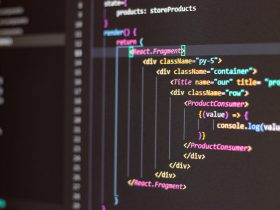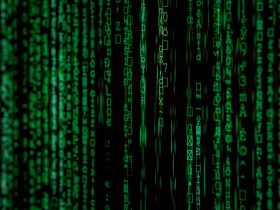A Beginner’s Guide to This Transformative Field
Data science has emerged as a transformative field in recent years, rapidly growing in popularity and importance across various industries. With its ability to extract valuable insights from vast amounts of data, data science is revolutionizing decision-making processes, enhancing business strategies, and driving innovation. For beginners looking to explore this exciting field, here is a comprehensive guide to demystify data science and get started on the journey.
What is Data Science?
Data science is an interdisciplinary field that combines statistical analysis, machine learning, and predictive modeling to uncover patterns, extract insights, and make data-driven decisions. At its core, data science is all about asking the right questions, collecting and interpreting relevant data, and utilizing advanced techniques to derive meaningful conclusions.
Key Skills and Knowledge
To embark on a career in data science, certain skills and knowledge are essential. These include:
- Statistics and Mathematics: A solid understanding of statistics and mathematics is fundamental to data science. Concepts such as probability, hypothesis testing, regression, and calculus are crucial for analyzing and interpreting data effectively.
- Programming: Proficiency in programming languages like Python or R is indispensable. These languages offer robust libraries and tools for data cleaning, preprocessing, visualization, and machine learning.
- Data Manipulation: Learning how to work with different types of data, such as structured, unstructured, or semi-structured, is a vital skill. Familiarity with tools like SQL for database querying and utilizing relational databases is also valuable.
- Machine Learning: Gaining expertise in machine learning algorithms and techniques is necessary for data scientists. Understanding how to build, validate, and deploy predictive models is crucial in leveraging data to generate valuable insights.
- Data Visualization: Communicating insights through visualizations is a key skill in data science. Tools like Tableau, Matplotlib, or ggplot2 help create meaningful and interactive visual representations of data.
- Domain Knowledge: Developing expertise in a particular domain, such as finance, healthcare, or marketing, is advantageous. Combining domain knowledge with data science skills enables professionals to generate more targeted and impactful insights.
Learning Resources
To get started in data science, there are numerous online resources available that cater to beginners:
- Online Courses: Platforms like Coursera, edX, and Udacity offer comprehensive data science courses taught by leading experts. These courses cover the foundational concepts, programming skills, and practical applications of data science.
- Webinars and Tutorials: Various organizations and communities host webinars and provide tutorials on specific data science topics. These resources enable beginners to gain insights into real-world applications and stay updated with the latest advancements.
- Open-Source Tools and Libraries: Embracing open-source tools and libraries like Jupyter Notebooks, scikit-learn, TensorFlow, and PyTorch facilitates hands-on learning and experimentation.
- Coding Challenges and Competitions: Platforms like Kaggle offer coding challenges and competitions where beginners can sharpen their skills, learn from others, and gain exposure to real-world datasets and problems.
- Blogs and Online Communities: Reading data science blogs and engaging in online communities like Reddit’s data science subreddit or towardsdatascience.com allows beginners to connect with the data science community, learn from experienced professionals, and share their own insights.
Ethical Considerations
While data science offers immense potential and advancements, it is essential to consider and address ethical challenges. Data scientists must respect privacy, ensure data security, avoid biases, and maintain transparency in their processes. This includes considering the ethical implications of data collection, usage, and potential impacts on individuals or society.
The Future of Data Science
As data continues to grow exponentially, the demand for skilled data scientists will increase. This will open doors to exciting and lucrative career opportunities across industries, including finance, healthcare, retail, and technology. Additionally, the integration of data science with other emerging technologies like artificial intelligence and big data analytics will further drive innovation and shape the future of this transformative field.
Summary
Data science is an exciting field that holds immense potential for professionals looking to leverage the power of data and make a significant impact. By acquiring the necessary skills and knowledge, utilizing learning resources, and considering ethical implications, beginners can dive into the world of data science and unlock its remarkable possibilities.


















Leave a Reply